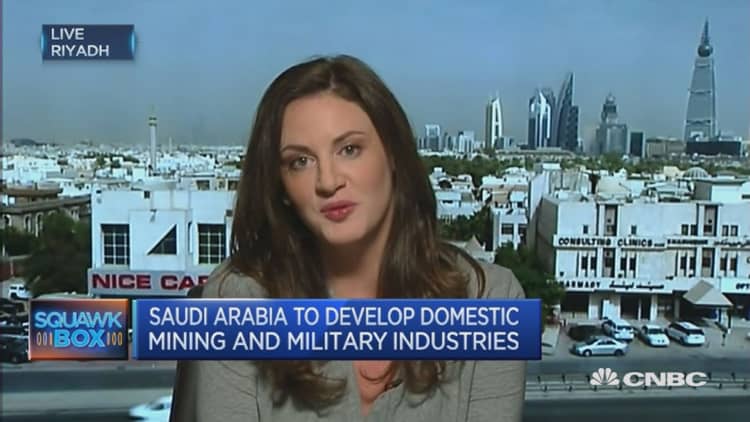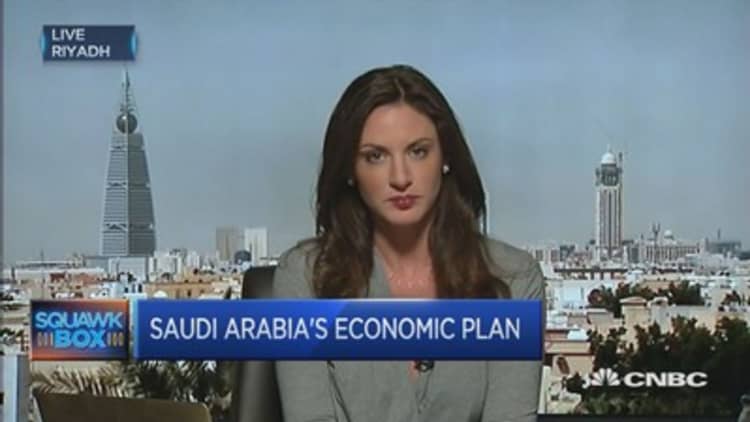



Saudi Arabia's plans to diversify its economy were welcomed by the International Monetary Fund's Middle East chief on Tuesday but he told CNBC that Saudi also needed to focus on attracting private investment.
Masood Ahmed, director of the IMF's Middle East and Central Asia department, told CNBC Tuesday that he welcomed Saudi Arabia's announcement the previous day of a plan to diversify its economy away from oil. However, he added that he hoped the kingdom and its Gulf neighbors would seek more private investment.
"I think it is the right approach in the sense of the level of ambition and also in terms of the comprehensive scope because, really, Saudi Arabia's economy is facing major challenges."
"They've got budget deficits that are going to be unsustainable at current and projected oil prices and they have a growth model primarily driven by oil so diversifying the economy and trying to balance the budget are the right objectives."
On Monday, major oil producer Saudi Arabia announced an economic plan designed to shift the kingdom away from oil production over the next 15 years. The plan included regulatory, budget and policy changes which aimed to create a "prosperous and sustainable economic future." In addition, the kingdom announced privatization measures and the creation of what it called the "largest sovereign wealth fund in the world."
The plan was unveiled by Saudi Arabia's increasingly influential Deputy Crown Prince who told CNBC that the new sovereign wealth fund could top $3 trillion. Earlier yesterday, Saudi confirmed that it planned to sell a stake of its state oil giant Saudi Aramco which was expected to be valued at more than $2 trillion.
Saudi needs private money
The IMF's Ahmed said on Tuesday that the "key issue" facing Saudi now was "how to make sure this gets implemented and building the institutional capacity to deliver on these objectives." He also hoped that the country and its neighbors would gradually look to attract more private investment.
"I think a lot of the growth has to come not from the investment of public money but from the attraction of private money because the growth model in Saudi Arabia and many of the Gulf countries has been one where the state has been playing a big role in terms of investment and being an economic agent," he noted.
"Going forward, more and more, that economic activity funding has to come from private companies with the state playing more of a traditional role of regulator."
Lost oil revenues
The IMF warned on Monday that cheap oil meant a "new reality" for the Middle East and that growth in the region remained subdued "persistently low oil prices and deepening regional conflicts."
In its latest regional assessment of the MENAP (Middle East, North Africa, Afghanistan and Pakistan) region, the IMF said that gross domestic product growth would be around 3 percent in 2016, a slight pick-up from last year due to increased oil production in Iraq and post-sanctions Iran.
However, it warned that growth in most other oil exporters is projected to slow further this year as they tighten public spending in response to lower oil prices.
Commenting in the report, Ahmed said that oil exporters lost a "staggering" $390 billion in export revenues last year on the back of the slump in oil prices and were expected to lose a further $140 billion this year.



